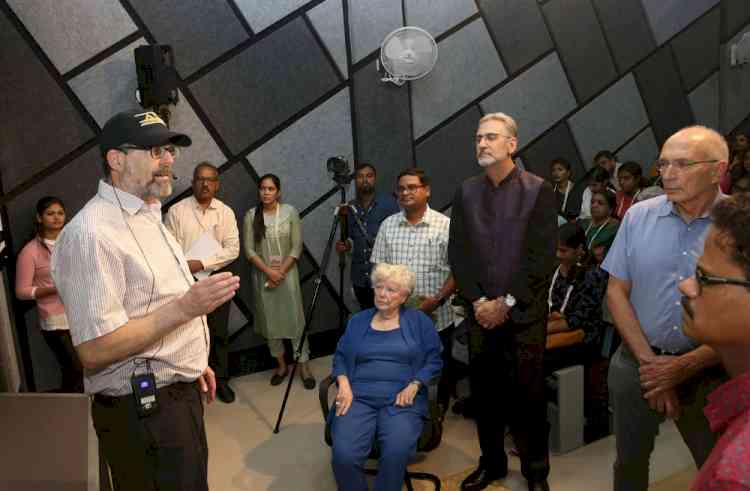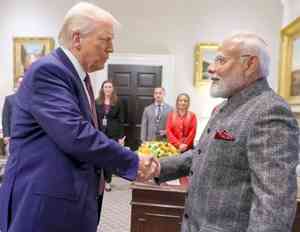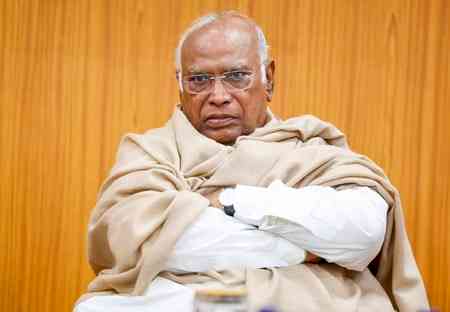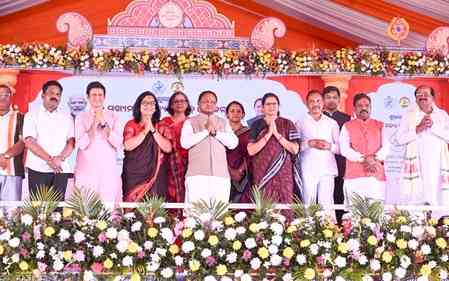Society needs to stop seeing autism as a handicap: Dr Stephen Mark Shore
In a world where society still sees autism as a handicap, knowing and understanding the disability can change this mindset, according to Dr. Stephen Mark Shore, Clinical Associate Professor, Adelphi University, New York. By directly getting to know autism will help immensely in bringing people affected by it to the mainstream, he added.

Thiruvananthapuram, July 6, 2023: In a world where society still sees autism as a handicap, knowing and understanding the disability can change this mindset, according to Dr. Stephen Mark Shore, Clinical Associate Professor, Adelphi University, New York. By directly getting to know autism will help immensely in bringing people affected by it to the mainstream, he added.
Speaking on the second day of the three-day International Conference on Comprehensive Education (ICCE) for Children with Special Needs, at the Different Art Centre, in Thiruvananthapuram, he pointed out that understanding the abilities of the autism-affected and guiding them as per their interests, would open up vast possibilities for them. The society needs to stop seeing them as lesser humans or disabled, he added.
“Autism is not a medical condition. Rather, we need to accept their differences and prepare a place for them in society. Every autistic child has different abilities. They can be brought to the forefront of society by identifying these abilities and training them in a focused manner,” Dr Shore said.
Many autistic people today are accomplished in various fields. According to their interests, they are better than ordinary people at the workplaces. Dr Stephen Shore's keynote speech was based on his own life, and proved to be inspiring to the core. He was able to create awareness among the audience by presenting his autism journey right from his childhood, and the stage when he realised that autism is not a weakness, but a strength to achieve many things.
People affected by autism are very particular about what they do, he said, pointing to his childhood hobby of repairing watches. He elaborated on his own life, saying that working in a bicycle repair shop during his college days and later repairing bicycles for students on the campus, and thereby earning an income proved to him that autism is not a shackle at all.
He added that by employing autistic people in jobs, would ensure accuracy in the work they undertake and as they work at their own will, they complete it without hesitation or difficulty.
Earlier, leading a workshop as part of the international conference, Dr Stephen Mark Shore presented a detailed awareness programme on different types of disabilities, including autism, and the training to be given to children in this category, was discussed as part of his lecture. Driving home his point through the medium of a game, he told the audience how even small things in the social environment could affect children with autism in a big way. He spoke about the physical and mental conditions of autistic children, and the social conditions that need to be provided to them.
Parents of differently-abled children need to come together so as to devise projects for such children, and get them implemented through government intervention. The idea emerged during a panel discussion with Anita Frey, Clinical Associate Professor at Adelphi University, New York, at the three-day international conference, currently on at the Different Art Centre in the Kerala capital. Anita Frey spoke about the impact of family environment on the development of differently-abled children and the awareness that parents should have.
Pointing out that parents well understand differently-abled children, she said it is necessary to provide proper training and awareness to the parents with regard to their care. She called for forming special teacher-parent associations for the parents of differently-abled children in schools and such organizations should jointly devise economic and social assistance schemes.
Dr. Alka Kalra, Managing Director, Eduscan Group, Dubai, delivered a talk on mental health of children and understanding their behavioural patterns so as to give them proper training. Many people, including parents of differently-abled children, participated in the international workshop.
Prof. KC Janardhan, Founder, J's Quill Group, spoke about the need for a disability-friendly society. Parents and friends can play a big role in building the confidence of children with special needs and helping them believe in their abilities.



 City Air News
City Air News 










